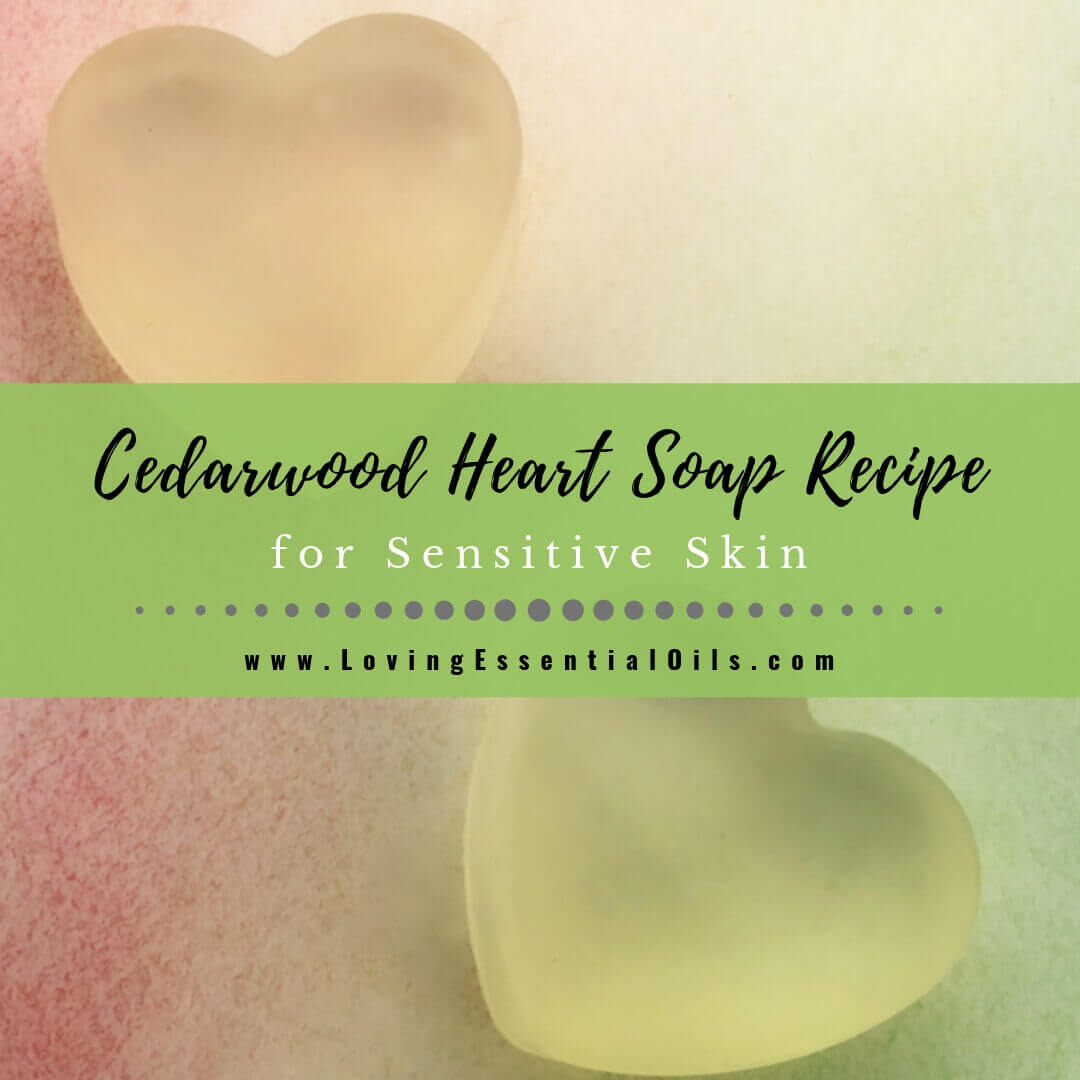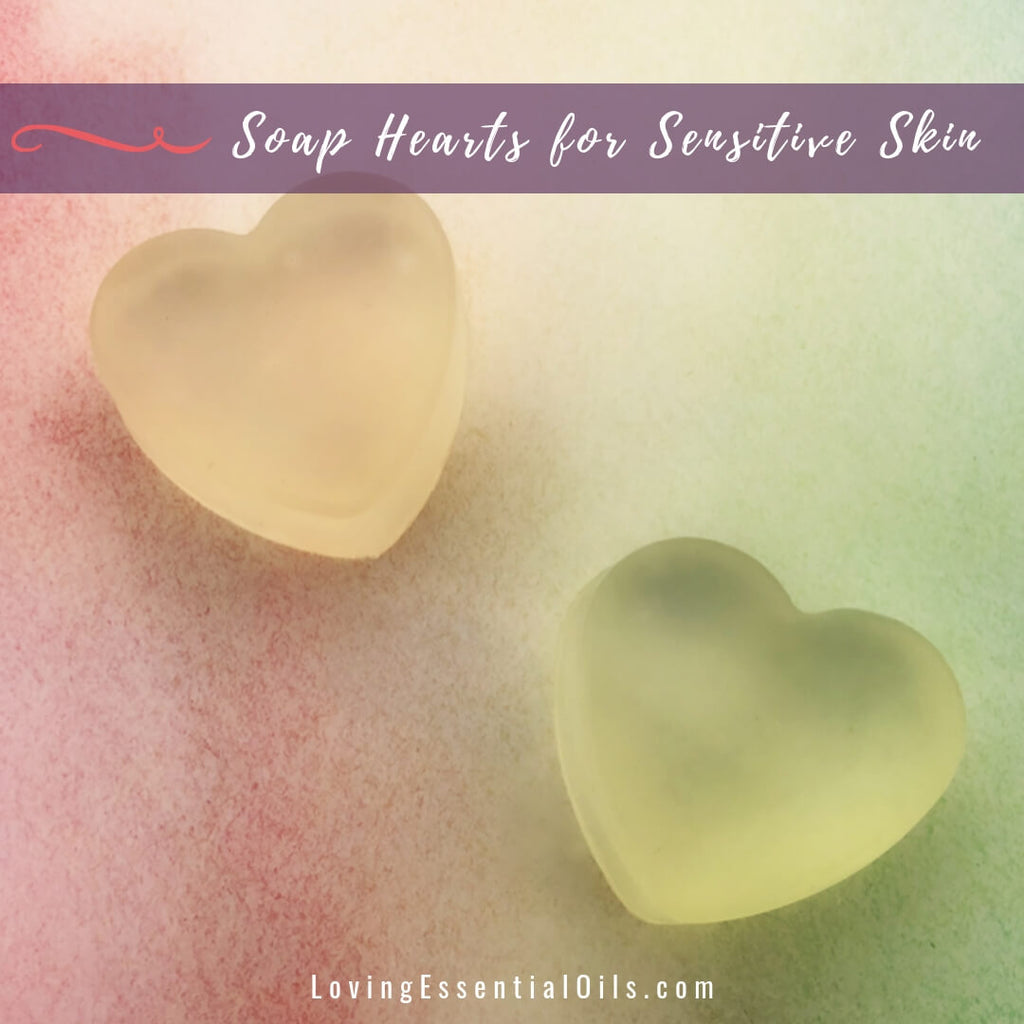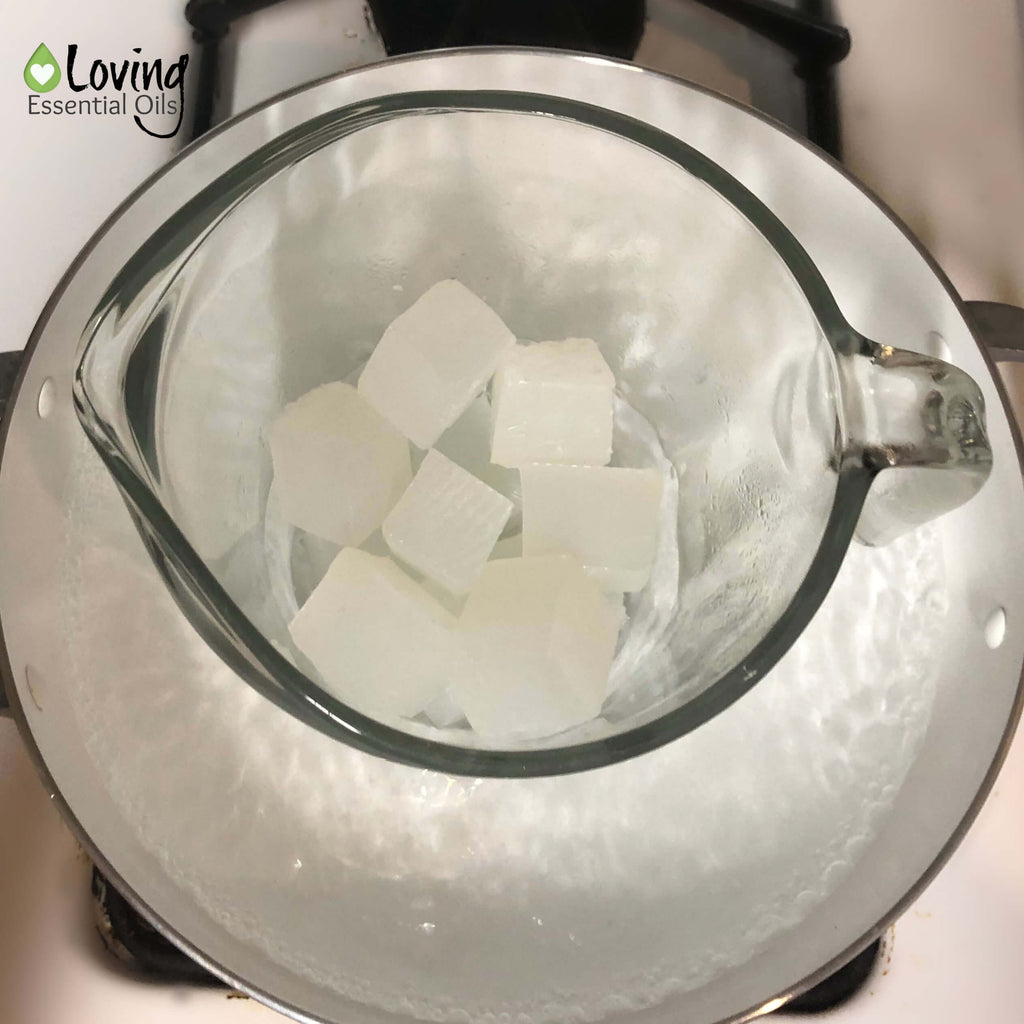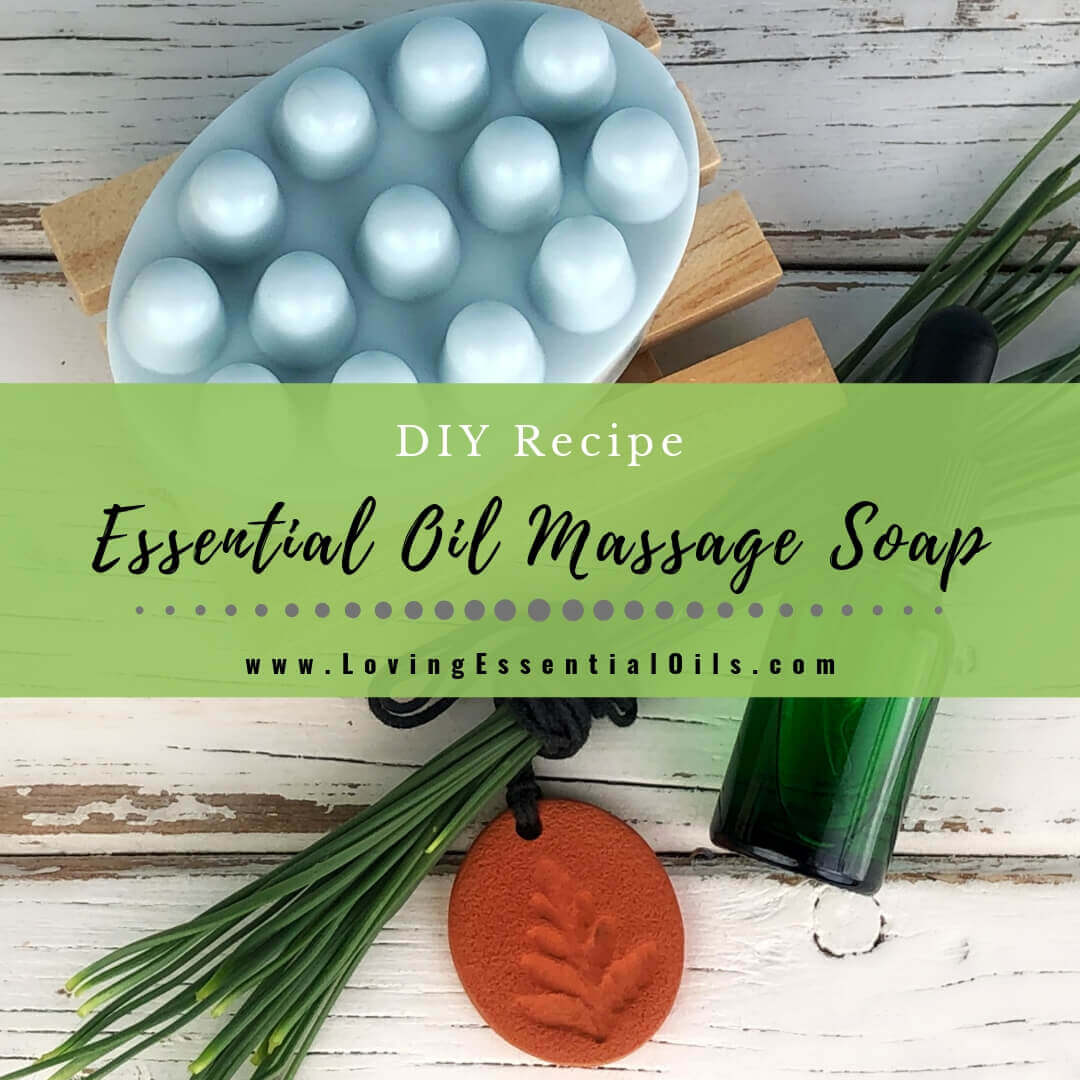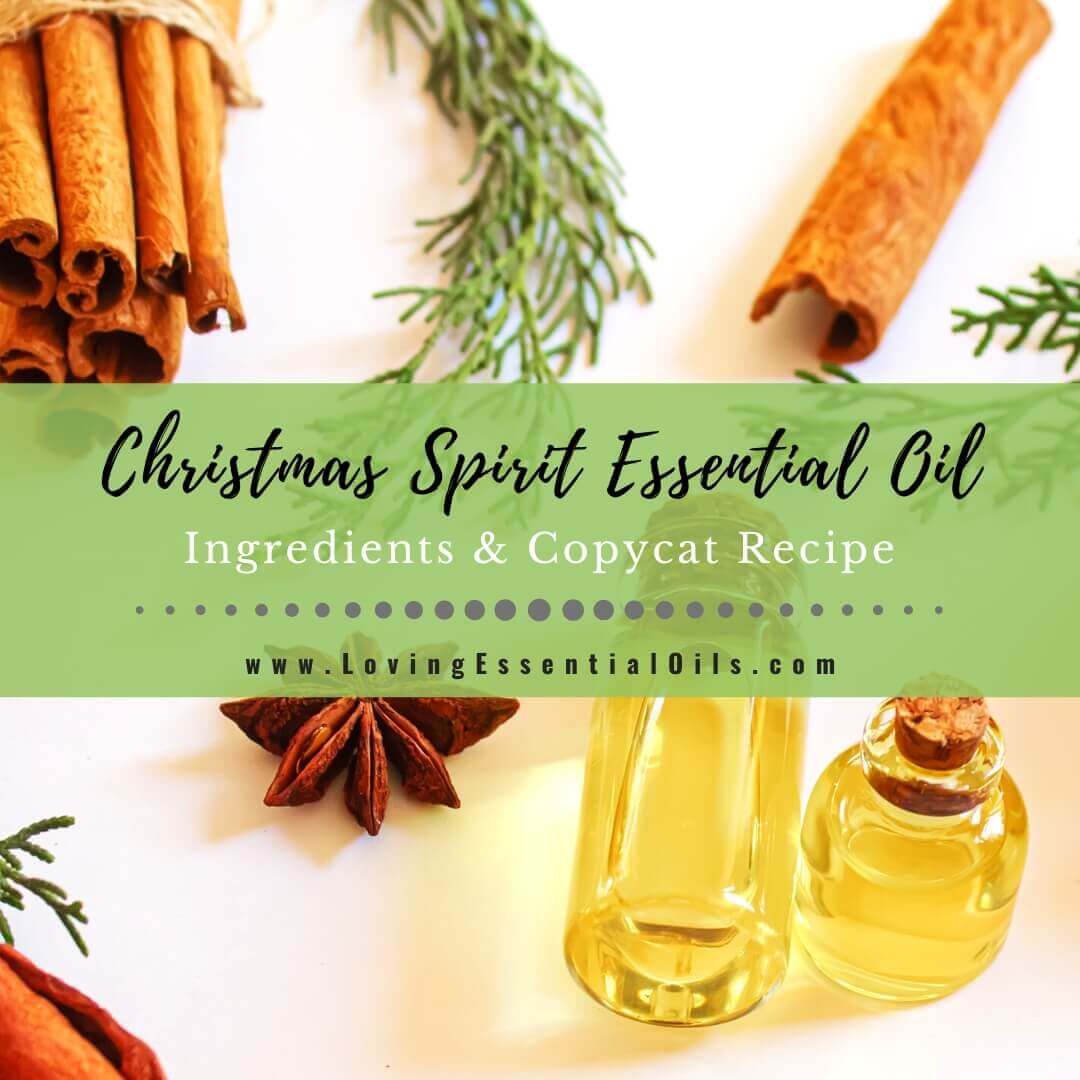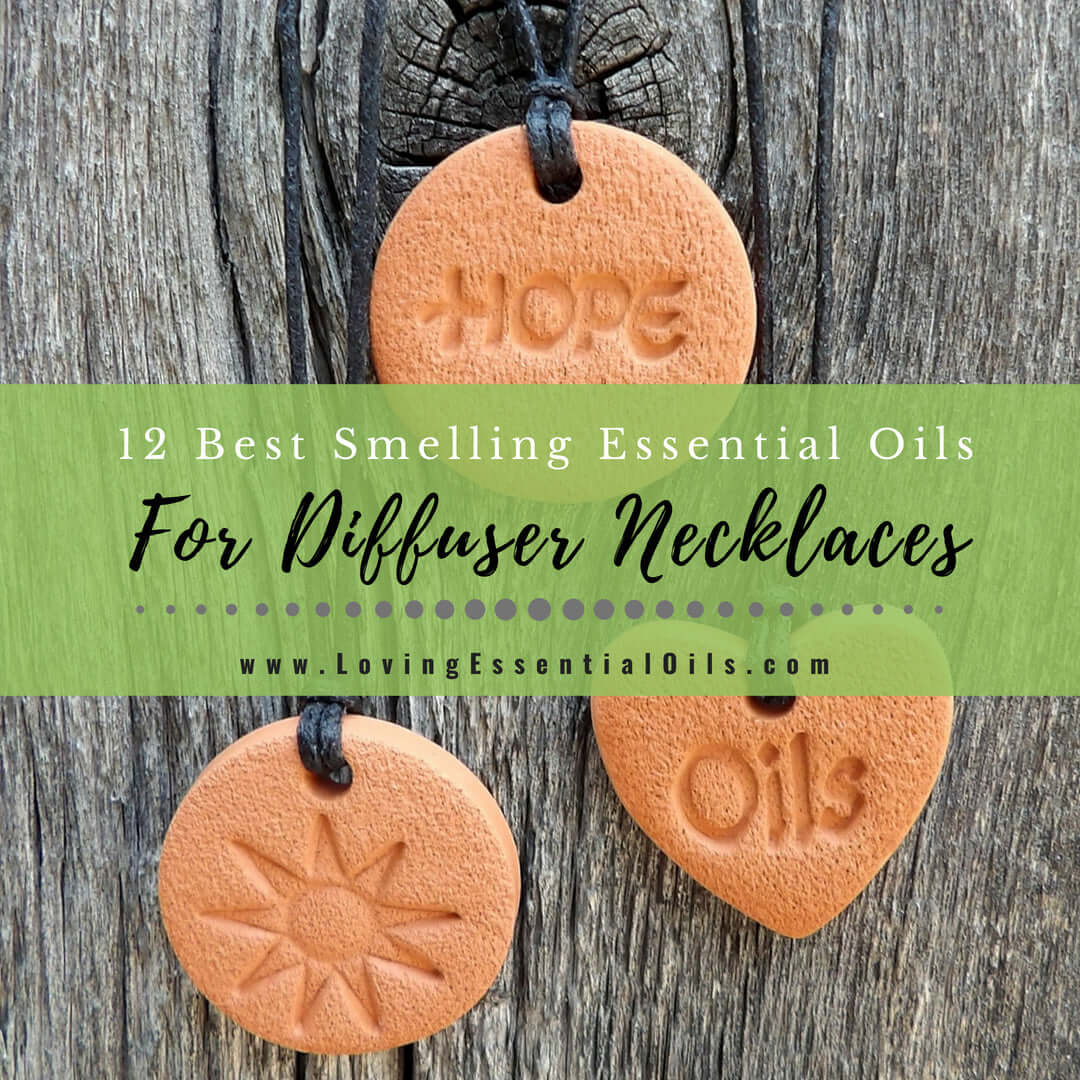Table of Contents
Here is a simple Cedarwood Essential Oil Soap Recipe for Sensitive Skin. I make this melt-and-pour soap recipe for my youngest son, who suffers from psoriasis.
What helps my son avoid flare-ups of his psoriasis is staying healthy and avoiding harsh chemical products on his skin. That is how I came to make these soaps for sensitive skin. I use a heart shape because I think they look cute!
For this homemade soap recipe, I use a glycerin melt and pour base soap and cedarwood essential oil, that is it!! Simple right? That is the beauty of this DIY essential oil recipe, which is why it is perfect for those who suffer from skin sensitivity.
Benefits of Cedarwood Essential Oil Soap for Sensitive Skin
I chose cedarwood essential oil for this homemade soap recipe because it is a skin-friendly oil and it's safe to use on kids. There are several types of cedarwood oil; any kind can be used. I used juniperus virginiana in my soap recipe.
Here are just some of the fabulous benefits of cedarwood oil Soap:
- Woody scent that is calming and grounding
- Wards of negative thoughts and worries
- Benefits for the respiratory system
- Soothes congestion and assists against infections
- Has a sedative action on the mind and body
Glycerin Soap for Sensitive Skin
Sensitive skin tends to quickly become dry, itchy, and red. The skin may even become inflamed from skincare products with synthetic fragrances. The two natural ingredients in this DIY soap recipe, glycerin soap and essential oils, actually have therapeutic value that can improve skin condition.
Glycerin soap is gentle on the skin and is especially loved by people with skin sensitivities because it contains no dyes or perfumes. Glycerin has a clear color with no real aroma. It helps lock in your skin’s natural moisture, which helps to prevent over-drying.
Using a soap base is an easy way to make soap at home. Here is the glycerin soap base I use in this recipe. I like that it comes in squares for easy cutting and measuring:
Best Essential Oils for Sensitive Skin
Essential oils are a popular natural remedy for many common ailments, but they can also be helpful for people with sensitive skin. Unlike some synthetic fragrances, essential oils are gentle and non-irritating for the most part.
Finding the right product can be challenging for those with sensitive skin. However, there are essential oils available that offer soothing properties to help alleviate discomfort. These natural remedies have proven effective for many individuals who struggle with this issue.
Don't want to use cedarwood essential oil? You can try other essential oils if you prefer for this recipe. I find it best to try only one essential oil at a time on my son's sensitive skin to get an accurate read on how he reacts to it.
Here are some substitute options:
- Lavender essential oil
- Frankincense essential oil
- Palmarosa essential oil
- Rose essential oil
- Neroli essential oil
- Chamomile essential oil
- Sandalwood essential oil
The oils above are all very gentle and have anti-inflammatory properties that can help to reduce redness and irritation. If you have sensitive skin, test any new essential oil on a small patch of skin before using it more widely.
Essential oils offer gentle yet practical solutions that can be used safely and effectively. With a little trial and error, you should be able to find the perfect oil or blend of oils to help your skin look and feel its best.
Best Heart Soap Mold
The heart silicone mold that I use is by Wilton. It is absolutely my favorite soap mold. It is sturdy and solid, yet easy to remove the soap. Plus, I love how my soaps have a crisp heart shape!
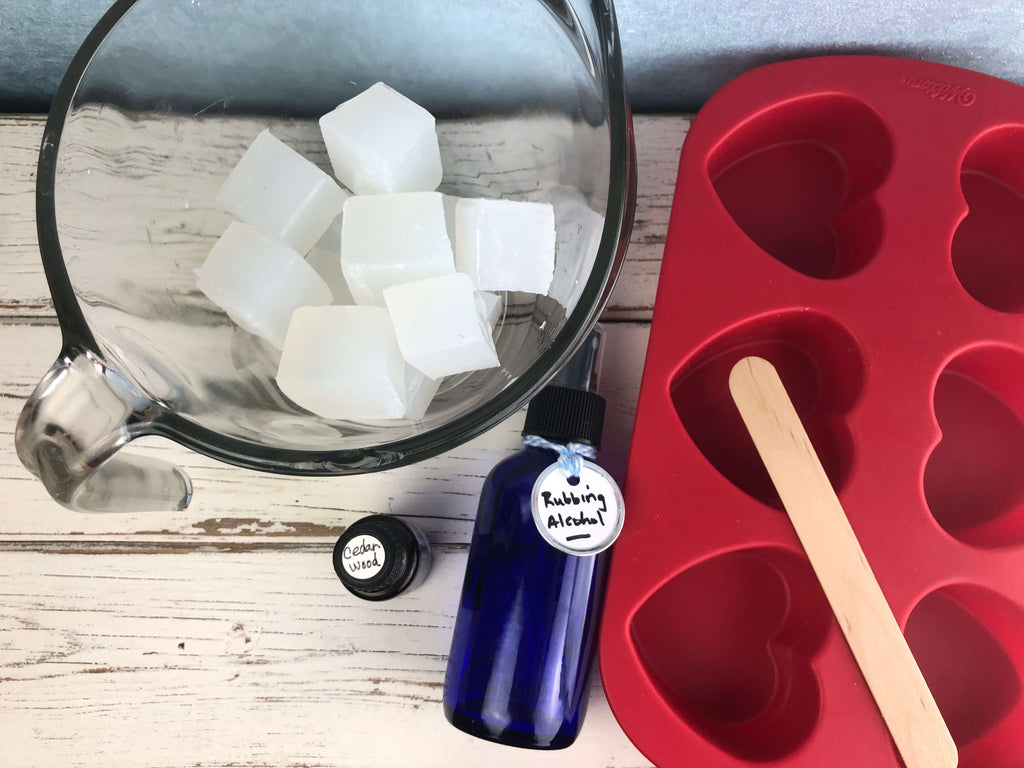
DIY Cedarwood Essential Oil Soap Recipe
- 10 oz Glycerin Melt and Pour (by weight)
- 50 drops Cedarwood Essential Oil (any type)
- Heart Silicone Mold
- Rubbing Alcohol in a spray bottle (optional)
Directions
Step 1: Cut up glycerin soap and place it into the glass measuring cup. It should weigh 10 oz or if using the same soap as I am, it is 12 squares.
Step 2: Place the glass measuring cup into a pan with 2 inches of boiling water. Boil until melted, takes about 10-15 minutes.
Step 3: Remove from heat and add essential oils. Blend in well. Pour evenly into three hearts.
Step 4: Immediately spray the top of soaps with rubbing alcohol in a spray bottle, this pops the little bubbles that form on the soap tops when poured into the mold. (this step can be omitted if you don't mind the little bubbles)
Step 5: Let cool. Once solid (about 2 -3 hours), pop out of the silicone mold.
Step 6: Wrap soaps individually in plastic wrap to prevent soap from sweating.
Cedarwood Essential Oil Skin Care Benefits
Cedarwood essential oil is derived from the wood of the cedar tree through a steam distillation process. In terms of skincare specifically, this oil has gained recognition for healing and nourishing.
- Its anti-inflammatory properties make it an effective remedy for irritation, redness, or itching caused by allergies, acne breakouts, or eczema flare-ups.
- This natural solution can also alleviate insect bites or stings thanks to its calming effects.
- Its astringent properties can help regulate excessive sebum production in the skin. This makes it an excellent natural remedy for individuals who struggle with oily or acne-prone complexions, as it tightens pores and reduces breakouts caused by bacteria growth on their surface area.
- Its antibacterial capabilities also contribute to preventing further outbreaks from occurring while promoting healthy looking skin overall.
As you can see, cedarwood essential oil is a valuable asset when it comes to maintaining healthy and radiant skin.
Melt and Pour Soap Benefits for Essential Oils
Melt and pour soap base is a popular choice among beginners who want to create their own soaps without the hassle of traditional methods.
No Lye
This method eliminates any need for lye, which can be dangerous if not handled properly - making it safer than other options available today. Melt this soap base with just a few simple steps and add essential oils. You'll easily create something unique that smells amazing, too.
Customizable Scent and Benefits
Melt and pour soap base offers many customization options for individual preferences. Adding essential oils can infuse their soaps with desired fragrances or therapeutic benefits such as relaxation or stress relief, depending on the oil used.
Soap Color Options
Melt-and-pour soap bases are easily colored using natural dyes or coloring agents without compromising quality. This versatility ensures each creation is distinctive and suits specific needs.
FAQs
What are the benefits of using essential oil soap for sensitive skin?
Essential oil soaps can be beneficial for sensitive skin as they often contain natural ingredients that are soothing and gentle. Essential oils like lavender and chamomile have calming properties that can help reduce irritation and redness.
How do you make essential oil soap suitable for sensitive skin?
To make essential oil soap suitable for sensitive skin, start with a mild soap base and add essential oils known for their soothing qualities, such as chamomile or lavender. It's important to use oils in moderation to avoid potential irritation.
Which essential oils are best for sensitive skin soap recipes?
Essential oils best suited for sensitive skin soap recipes include chamomile, lavender, and sandalwood. These oils are known for their calming and anti-inflammatory properties, ideal for delicate or reactive skin types.
Can essential oils cause irritation in sensitive skin when used in soap?
While essential oils can enhance soap recipes, they can also cause irritation if not used properly. Choosing oils that are gentle on sensitive skin and using them in appropriate dilutions to minimize the risk of adverse reactions.
How can you test if an essential oil soap is safe for sensitive skin?
To test if an essential oil soap is safe for sensitive skin, perform a patch test by applying a small amount of soap to a discreet area of the skin and observing for any reactions over 24 hours. This helps ensure the soap is gentle enough for regular use.
Share on Pinterest


